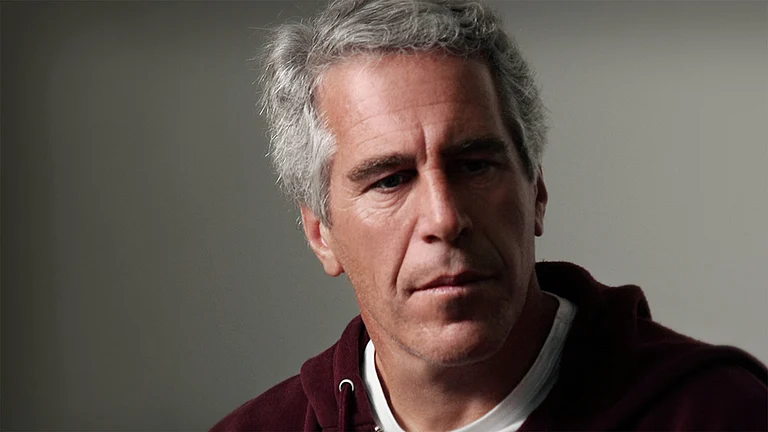The reactions in Kashmir to the Hizbul Mujahideen's announcement of a 90-day ceasefire have laid bare the complex pattern of intrigue and self-serving cynicism that has poisoned what was, once, a simple fight for self-determination by people who had become fed up with being manipulated by their own politicians and by the Central government in New Delhi. The Indian government's reaction has been one of unhesitating, albeit cautious, welcome. A meeting of the security forces' unified command in Srinagar, held the day after Abdul Majid Dar's press conference, welcomed the announcement and decided that peace had to be given a chance. This consensus was expressed publicly by governor Girish Saxena. In New Delhi, Prime Minister Atal Behari Vajpayee also lost no time in welcoming the announcement and reiterating his desire to hold talks with the Hurriyat Conference. What is far more important is that Parliament unanimously passed a resolution on the first day of the monsoon session authorising the government to hold talks on further autonomy to Kashmir based upon the situation that prevailed at the end of the talks with Sheikh Abdullah in 1975. Vajpayee has thus cleared the political and legal decks for meaningful talks with the Hurriyat Conference.
The reaction of various jehadi outfits in Pakistan has also predictably been one of pure frustrated rage. They have roundly condemned the Hizbul, thrown its leader Syed Salahuddin out of the United Jehad Council and vowed to continue the fight to 'liberate' the Muslims of Kashmir from their infidel Hindu oppressors. Their anger stems from the fact that the Hizbul's surprise announcement threatens to knock the bottom out of their plans to capture the weakening Pakistani state by riding on the back of the armed struggle in Kashmir. Ever since Kargil, the Jamaat-i-Islami, the Jamiat-ul-Ulema and the Lashkar-e-Toiba in Pakistan have been locked in competition to widen their power-base by posing as heroes and saviours of the Kashmiris. But their jehadis are foreigners who don't know Kashmir and can't even speak Kashmiri. The cadres of the Hizbul were, therefore, essential for them to perform their self-appointed mission.
It is the reactions in the Valley that are both more complex and more difficult to fathom. It was only to be expected that the skeletal remains of the pro-Pakistan outfits still remaining in the Valley, the Al Umar Mujahideen, the Jamiat-ul-Mujahideen, Al Jehad, and the women's organisation Dukhtaran-i-Millat would roundly condemn the Hizbul. But most of these were in any case only front organisations set up in the early 1990s by the isi to undertake specific tasks in Kashmir. They have no following worth the name today and have not even been heard of during the past four years.
What is far more puzzling, at least on the surface, is the sharp criticism of the Hizbul's ceasefire by the Hurriyat Conference. Ali Shah Geelani, till a few days ago its president, called the action 'hasty' and said that it would sow confusion in Kashmir. He went on to add that 'the solution to the Kashmir problem lies in negotiation between all concerned parties as per international principles'. This reaction is puzzling because far from adding to the 'confusion' in the Valley the Hizbul's decision has simplified the divisions in it by making the Kashmiri preference for a negotiated settlement unanimous. Today the only people who are not part of this consensus are the foreign jehadis. Hurriyat's criticism is all the more puzzling because in his press conference Dar made it clear that his purpose was to pave the way for talks between the Indian government and the Hurriyat. The Hizbul has, therefore, strengthened Hurriyat's hands in any future negotiations with New Delhi. Why then is Geelani criticising its decision? Is he against any negotiated solution to the Kashmir dispute? Does it really want the violence in the state to continue?
The key to resolving this riddle is to remember that Geelani is not the president of Hurriyat. Had this been a decision of its executive council, Hurriyat's new president Prof Abdul Ghani Bhat would have announced it. But Bhat has not said a word against the Hizbul. In claiming to speak for the Hurriyat as a whole, Geelani has arrogated for himself a right that he doesn't possess. He has only aired his personal opinion.
To those who know him and have kept abreast of developments in Kashmir, Geelani's views are no secret. Although he has been a corporator and mla ever since his youth and has sworn the oath of loyalty to the Indian Union no fewer than nine times, Geelani has never made a secret of his conviction that Kashmir should be a part of Pakistan. In 1992 he told this writer that he wanted Kashmir to secede to Pakistan and did not favour the so-called third option of independence. Two months ago, when he and other members of the Hurriyat's executive council were released from jail, as the then president of the organisation he issued a statement suggesting the trifurcation of J&K and a separate solution for the Valley - a proposal that Pakistan has been making in backdoor discussions for the past two or more years. On that occasion he was forced by other Hurriyat leaders to retract his statement.
Geelani's attempt to hijack Hurriyat yet again shows just how difficult it's going to be for New Delhi to hold meaningful negotiations with this motley group. When there are seven members in a negotiating group, when these seven hold views ranging from independence to outright accession to Pakistan, and when any one member can exercise a veto on the decisions of the council, then negotiations can go on forever without getting anywhere.























